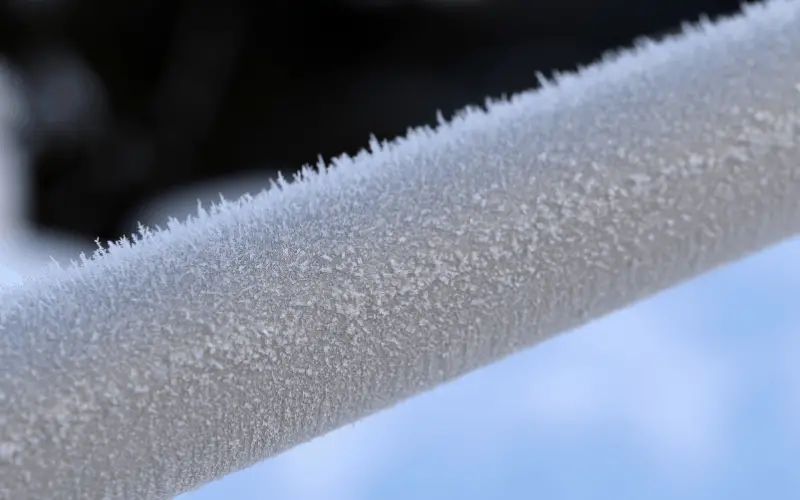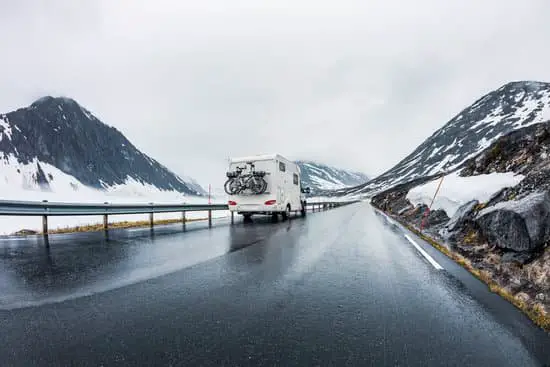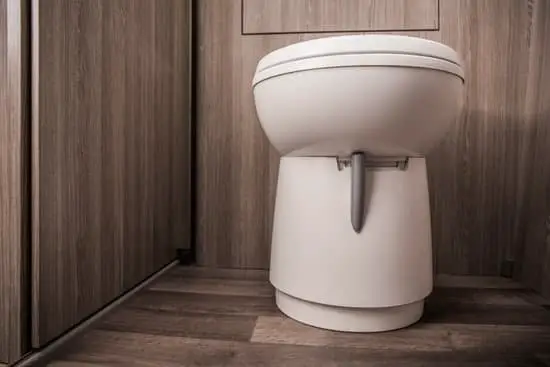Do you have pipes that are frozen and need to be melt? If so, it’s important to know that RV antifreeze won’t work for the job. There are several other methods you can use, though! In this article, we will discuss some of these methods and give examples of how they could be used in a practical setting.
Can Rv Antifreeze melt ice in pipes?
No, RV antifreeze won’t melt ice. RV antifreeze can be used to prepare RV plumbing for winter.
Antifreeze is used to prevent freezing in the first place, but it has to be applied in a certain way so that it can be functional. When you apply antifreeze to your pipes, the liquid must go all of the ways through. You need to be careful not to use too much so that there isn’t a chance for any freezing even if water gets inside in future instances.
Antifreeze does have some other uses as well though! It is often used to enhance the quality of drinking water or prevents corrosion on metal.
To melt a frozen pipe, you need to first locate the frozen areas of the pipes. To do this, you need to turn on the faucets in your property, and If no water comes out, or just a few drops, then a pipe leading to the faucet is likely frozen.
There are a few different ways to melt the frozen pipe. You can use hot water, which is more time-consuming and requires you to turn on your sink as well while it’s active for at least an hour. If that doesn’t work, or if there’s no running water in the house, then you’ll need to contact professionals.
If you don’t want to use hot water or if there is no running water, then the other option would be using a heat lamp. This type of light source has been shown to warm frozen pipes in as little as three hours and will cost about $20.
Another way that doesn’t require an active tap is by using a hand warmer. These types of warmers can be found at the dollar store and are powered by batteries that will last for hours on end. This type of solution is best if you have low water pressure or live in an area with cold winters; it’s also handy to keep around during power outages as well!
Can antifreeze be used on frozen pipes?
Swimming pools and sprinkler lines that are subject to freezing temperatures should be drain before they freeze again? Do not put antifreeze in your lines. It can cause environmental damage and toxic effects.
How can I freeze my RV pipes?
- Heater. To thaw pipes, you can use a portable propane heater or space heater with an extended cord.
- Heat Tape
- Heat Gun/Hair Dryer
- Contact a plumber.
- Winterize your Home
- Improve Your Insulation
- Heated water hose
Electric Tank Heater
What will Rv Antifreeze do to melt ice in pipes?
- Non-toxic RV antifreeze is what sets it apart from regular motor antifreeze.
- These should be inserted directly into the plumbing system.
- It’s the color that will tell you if it is RV antifreeze or car antifreeze.
- Antifreeze does not lower the freezing point, but it ignores the boiling point.
Can I flush antifreeze down the toilet?
Antifreeze should not be poured on the ground or put in the trash. If you have a sewer system, do not pour antifreeze down your household drains or into the toilet. Check to make sure you are connected to a municipal sewer plant before you pour antifreeze down the drains or toilets.
How do I determine if my pipes have frozen?
By Locate the Frozen Area
What is the average time it takes for RV pipes to freeze?
- About 24 hours
- Your RV pipes will freeze faster if the temperature drops to below freezing.
- If the temperature drops below freezing, it will take approximately 24 hours for your RV pipes to freeze.
Can hot water be poured down the drain to unfreeze pipes?
- In most cases, a frozen drainpipe can be unfrozen by pouring hot water down.
- Heat water in a large saucepan on the stove.
- It should boil when it starts to boil.
- This could be enough to melt the ice and clear out your drain.
Can I pour rock salt down the toilet?
Rock salt is safe to use with septic or sewer systems. Copper sulfate does not work well with septic systems. The temporary treatment is not permanent and it will not solve the problem.
To prevent pipes from freezing, let the cold or hot water run.
- Let the cold water run from exposed pipes’ faucets when it is very cold.
- Running water through the pipe, even at a trickle, helps to prevent pipes from freezing.
Can antifreeze cause you to die?
It will not cause any harm, so don’t flush it out. Although it may taste strange, it is safe. You can fill the tank, run the faucets for a while, and then drain it.
How can you winterize your RV without using antifreeze?
By simply using compressed air to blow out the plumbing, you can winterize your RV without any antifreeze. It is much easier to use compressed air to blow out the system. This requires two things: an air compressor and a “blow out plug”.
Can RV antifreeze be thrown on the ground?
Even if RV antifreeze is safe and non-toxic, you should not leave it on the ground.
It is a chemical substance that can still be used, so RV antifreeze can endanger the environment at many levels.
How do you dispose of ethylene glycol?
Non-hazardous used Antifreeze may also be disposed of at a facility that has been authorized to handle used Antifreeze. Many landfills have an area for used antifreeze disposal. You can’t dump used antifreeze with the regular trash.
How long does it take for pipes and other equipment to freeze?
- It takes approximately 6 hours
- After being left in an unheated place for 6 hours, water in your pipe will freeze.
- This means that if your house loses power and the temperature drops below freezing, it will take approximately 6 hours for the pipes to freeze.






